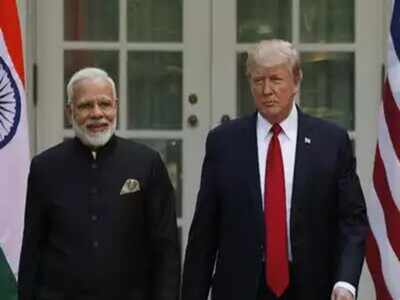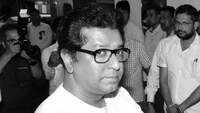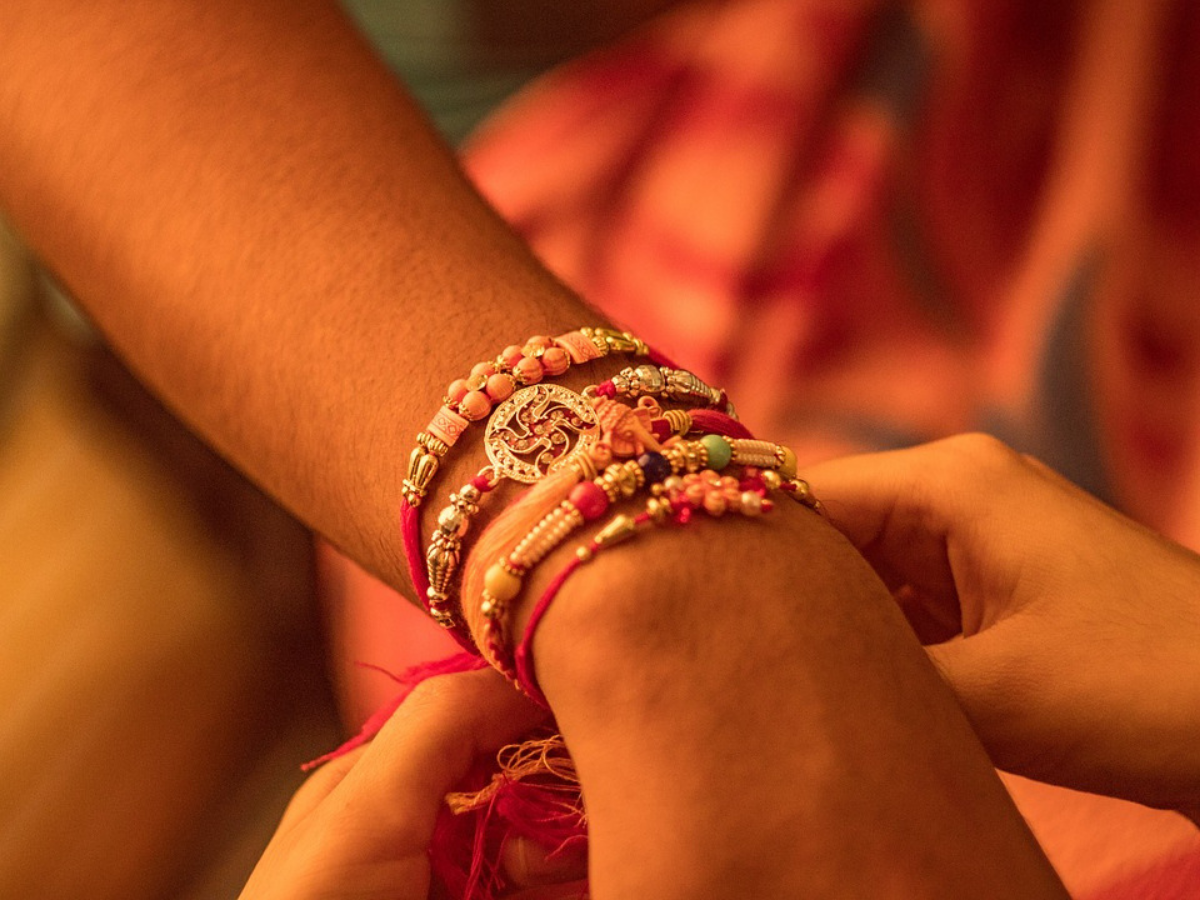
Highlights
NEW DELHI/WASHINGTON: Pakistani PM Imran Khan’s “extreme rhetoric” and incitement of anti-India violence is not conducive to peace, Prime Minister Narendra Modi told US President Donald Trump in their first interaction after the nullification of Article 370 and bifurcation of Jammu and Kashmir into two UTs.
“In the context of the regional situation, the PM stated that extreme rhetoric and incitement to anti-India violence by certain leaders in the region was not conducive to peace,” an Indian statement said, in a clear reference to Khan describing the Modi government as “fascist” and “supremacist” while also raising questions on the Indian nuclear arsenal.
Pakistani President Arif Alvi has also called for a jihad against India. Modi pointed to Pakistan leaders’ intemperate comments in response to Trump’s request to bring down temperatures. “He (Modi) highlighted the importance of creating an environment free from terror and violence and eschewing cross-border terrorism without exception,” the MEA readout said.
While Pakistan has sought to leverage Trump’s desire for a deal with Taliban and an exit from Afghanistan to demand that India resume dialogue on J&K, India has declared that there would be no dialogue with Islamabad until it stopped supporting terrorism and cross-border violence.
The Modi-Trump conversation follows the US President’s recent talk with Khan during which he stressed that Islamabad should settle its issues with India bilaterally. Trump’s conversation with Khan was a significant revision of his comments after a July 22 meeting with the Pakistani PM in Washington where he offered to mediate and even claimed Modi had sought as much.
The White House had not commented on the phone call with Modi at the time of writing, and Trump did not mention it in his Twitter feed where he railed, as usual, about domestic issues. The conversation came even as US negotiators neared an agreement with Taliban which is intended to pave the way for a US exit from Afghanistan. This was the first conversation between Modi and Trump since the Osaka G20 meeting.
The development came even as it was revealed that the suicide bomber who attacked a Shia-Hazara wedding in Kabul on Saturday and killed 63 people was a man named Abu Asim Al-Pakistani. While Islamic State took credit for the bombing, it appeared to have got it done with a hireling from one of Pakistan’s sectarian outfits.
Pakistan’s ambassador to US Asad Majeed Khan warned last week that Islamabad would be compelled to move troops from its western border with Afghanistan to its eastern front with India because of ongoing tensions over Kashmir in an effort to draw US intervention. Washington is not inclined to meddle in the matter, except insofar as its affects its drawdown from Afghanistan.
The Pakistani envoy’s ploy drew a sharp rebuke from his Afghan counterpart in Washington, who said linking the current situation in Kashmir with the ongoing peace efforts in Afghanistan was “reckless, unwarranted and irresponsible”. Asserting that Kashmir was “a bilateral issue” between India and Pakistan, Afghan ambassador Roya Rahmani said her country believed Pakistan’s motive and insistence to tie Afghanistan to the Kashmir issue was a deliberate attempt to prolong the violence on Afghan soil.
Trump has not brought up mediation after July 22 and the US supported India in the UN Security Council to push back a Chinese attempt to put India on the mat on J&K. Modi and Trump’s 30-minute conversation, the MEA statement said, was “marked by the warmth and cordiality which characterises relations between the two leaders”.
Modi prodded Trump over trade talks between commerce minister Piyush Goyal and USTR Robert Lighthizer. Goyal is expected to travel to the US in the coming days to resolve a festering trade dispute.
Interestingly, Modi referred to the 100th anniversary of Afghanistan’s freedom on Monday, indicating that the two leaders spoke at length about the ongoing peace process. “The prime minister,” the MEA said, “reiterated India’s longstanding and unwavering commitment to work for united, secure, democratic and truly independent Afghanistan.”
“In the context of the regional situation, the PM stated that extreme rhetoric and incitement to anti-India violence by certain leaders in the region was not conducive to peace,” an Indian statement said, in a clear reference to Khan describing the Modi government as “fascist” and “supremacist” while also raising questions on the Indian nuclear arsenal.
Prime Minister @narendramodi had a telephone conversation today with @POTUS H.E. Mr. Donald Trump. Their thirty-min… https://t.co/KlE1PB69kH
— PMO India (@PMOIndia) 1566225359000Pakistani President Arif Alvi has also called for a jihad against India. Modi pointed to Pakistan leaders’ intemperate comments in response to Trump’s request to bring down temperatures. “He (Modi) highlighted the importance of creating an environment free from terror and violence and eschewing cross-border terrorism without exception,” the MEA readout said.
While Pakistan has sought to leverage Trump’s desire for a deal with Taliban and an exit from Afghanistan to demand that India resume dialogue on J&K, India has declared that there would be no dialogue with Islamabad until it stopped supporting terrorism and cross-border violence.
The Modi-Trump conversation follows the US President’s recent talk with Khan during which he stressed that Islamabad should settle its issues with India bilaterally. Trump’s conversation with Khan was a significant revision of his comments after a July 22 meeting with the Pakistani PM in Washington where he offered to mediate and even claimed Modi had sought as much.
The White House had not commented on the phone call with Modi at the time of writing, and Trump did not mention it in his Twitter feed where he railed, as usual, about domestic issues. The conversation came even as US negotiators neared an agreement with Taliban which is intended to pave the way for a US exit from Afghanistan. This was the first conversation between Modi and Trump since the Osaka G20 meeting.
The development came even as it was revealed that the suicide bomber who attacked a Shia-Hazara wedding in Kabul on Saturday and killed 63 people was a man named Abu Asim Al-Pakistani. While Islamic State took credit for the bombing, it appeared to have got it done with a hireling from one of Pakistan’s sectarian outfits.
Pakistan’s ambassador to US Asad Majeed Khan warned last week that Islamabad would be compelled to move troops from its western border with Afghanistan to its eastern front with India because of ongoing tensions over Kashmir in an effort to draw US intervention. Washington is not inclined to meddle in the matter, except insofar as its affects its drawdown from Afghanistan.
The Pakistani envoy’s ploy drew a sharp rebuke from his Afghan counterpart in Washington, who said linking the current situation in Kashmir with the ongoing peace efforts in Afghanistan was “reckless, unwarranted and irresponsible”. Asserting that Kashmir was “a bilateral issue” between India and Pakistan, Afghan ambassador Roya Rahmani said her country believed Pakistan’s motive and insistence to tie Afghanistan to the Kashmir issue was a deliberate attempt to prolong the violence on Afghan soil.
Trump has not brought up mediation after July 22 and the US supported India in the UN Security Council to push back a Chinese attempt to put India on the mat on J&K. Modi and Trump’s 30-minute conversation, the MEA statement said, was “marked by the warmth and cordiality which characterises relations between the two leaders”.
Modi prodded Trump over trade talks between commerce minister Piyush Goyal and USTR Robert Lighthizer. Goyal is expected to travel to the US in the coming days to resolve a festering trade dispute.
Interestingly, Modi referred to the 100th anniversary of Afghanistan’s freedom on Monday, indicating that the two leaders spoke at length about the ongoing peace process. “The prime minister,” the MEA said, “reiterated India’s longstanding and unwavering commitment to work for united, secure, democratic and truly independent Afghanistan.”
more from times of india news
Trending Topics
More from TOI
Navbharat Times
Featured Today in Travel
Quick Links
August 15RTI BillGujarat ElectionKarnataka ElectionMP Lok Sabha electionMaharashtra election 2019West Bengal Lok SabhaTamil Nadu election 2019UP Election 2019Bihar election 2019UP Election DateAndhra Election DateBihar Election DateAndhra Assembly ElectionLok SabhaMP Election DateMaharashtra Election DateShiv SenaYSRCPTDPWB Election DateJDUCongressBJP newsGujarat Election DateSC ST ActUIDAIIndian ArmyISRO newsSupreme CourtRajasthan Election DateTelangana Election DateTamilrockers 2018Uttarakhand newsSikkim newsOrrisa newsKarnataka Election DateNagaland newsSatta KingManipur newsMeghalaya news
Get the app









